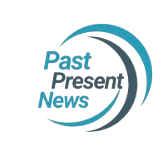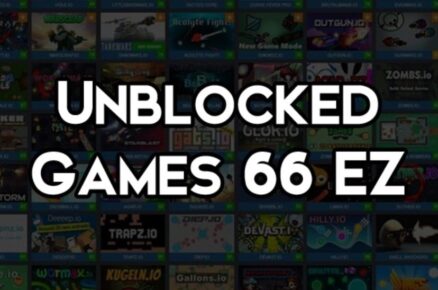
Are you thinking about shopping a domestic? One of the maximum important steps on this process is obtaining a mortgage. But in which do you start? With so many alternatives and necessities, it may be overwhelming to navigate the sector of mortgages. That’s why we’ve put together this comprehensive manual to UWM Mortgage a hundred and one: Everything You Need to Know Before Applying. Whether you’re a first-time homebuyer or searching out refinancing options, this article will offer treasured insights into forms of mortgages, how to qualify, the software procedure, terms and situations, in addition to advantages and dangers related to mortgages. So seize a cup of espresso and let’s dive in!
What is a loan?
A loan is a kind of mortgage that you may take out to shop for belongings. This might be a residence, condo or any other shape of actual property. The lender will offer you with the budget needed to purchase the assets, and in change, you settle to pay back the mortgage over time with hobby.
The terms of mortgages range relying on elements consisting of credit score rating and down payment quantity. There also are exclusive forms of mortgages to be had, along with constant-price and adjustable-price alternatives.
With a fixed-charge mortgage, your month-to-month payments live steady in the course of the existence of the loan. Alternatively, an adjustable-rate loan has variable payments which could growth or decrease primarily based on marketplace situations.
It’s crucial to apprehend all aspects of a loan before figuring out which one is proper for you. With careful consideration and making plans, obtaining a mortgage can be an powerful manner to spend money on your destiny thru homeownership.
The special styles of mortgages
When it comes to mortgages, there are numerous kinds available in the marketplace. Understanding each kind will assist you in making an informed decision about which one is satisfactory and suitable for your monetary scenario.
Fixed-price mortgages: As the call shows, this sort of mortgage has a hard and fast hobby fee that remains consistent for the duration of the loan. This makes budgeting simpler as your month-to-month payments continue to be constant.
Adjustable-charge mortgages (ARMs): ARM loans have variable interest rates that change periodically at some stage in the loan’s term. The initial length may additionally provide lower prices; however, they are able to increase over the years based on market situations.
FHA Loans: These loans are insured by the Federal Housing Administration and are popular among first-time homebuyers who do not have a large down payment or credit history.
VA Loans: VA loans are completely available to veterans and contributors to the Navy seeking to buy houses without making a large down payment.
Jumbo Loans: Jumbo loans exceed conventional loan limits set by government-backed entities like Fannie Mae and Freddie Mac. They’re intended for those searching for high-fee homes with larger mortgages.
Choosing which type of loan is right for you depends on different factors, including your credit score, profits, debt-to-earnings ratio, and future plans. It’s always advisable to discuss those options with a certified professional who can guide you through them before making use of any mortgage product.
How to qualify for a loan
Qualifying for a loan is a critical step in the domestic shopping process. Lenders consider numerous factors before approving your utility, including your credit score rating, profits, and debt-to-earnings ratio.
To qualify for a mortgage, you ought to have a reliable source of income that can cover the month-to-month bills on the mortgage. The lender will even review your credit score records to decide whether or not you’re financially responsible. An excellent credit score shows that you pay payments on time and manipulate debt responsibly.
The lender will have a look at your debt-to-profits ratio (DTI) to see how much cash you owe in comparison to how much you earn. Ideally, lenders select debtors with a DTI below 36%, which means that less than 36% of their monthly gross profits go toward paying off debts.
Another issue lenders don’t forget when qualifying borrowers is their employment status. They want to understand if you have been hired continuously for at least five years or more with the intention of feeling assured about lending cash.
Having financial savings or belongings such as investments or belongings allows you to display to creditors that you are capable of overlaying unexpected expenses like closing expenses or making loan payments should something happen together with your process or health status.
Knowing what it takes to qualify for a loan can assist in navigating this complex manner and boost the chances of having authorization by imparting whole documentation at some point in the pre-approval stage.
The loan utility manner
The mortgage utility method can be daunting and overwhelming, but it should not be. If you’re organized and recognize what lenders are searching for, the process can go easily.
Firstly, gather all of your financial information, which includes pay stubs, tax returns, financial institution statements, and other documentation that shows your profits and belongings. This will help you decide how much you qualify for.
Next, shop around for lenders that offer competitive costs and fees. It’s important to examine offers from multiple lenders before you make a decision.
Once you’ve observed the right lender, begin filling out their utility form, which normally consists of private data along with employment records and a credit score rating.
During this stage of the process, creditors can also request additional documentation or clarification on positive elements of your monetary records. Be positive and offer timely responses to avoid any delays in the approval process.
After submitting your finished application along with supporting files, wait for the lender’s decision on whether or not they approve your mortgage request. The waiting period can take anywhere from a few days up to several weeks, depending on various factors, including marketplace conditions and lending policies.
Mortgage terms and conditions
Understanding the terms and conditions of your mortgage is critical before signing any settlement. One of the most crucial matters to look out for is the hobby rate, which determines how much you’ll be paying for the most important amount borrowed. The interest charge can either be constant or adjustable, with constant costs being more strong and predictable.
Another extensive element is the loan time period, which refers back to the length of time you need to repay your mortgage. Generally, mortgages vary from 15 to 30 years; however, it’s possible to find shorter or longer alternatives based on your needs.
It’s additionally critical to understand any costs that may be related to your mortgage. This includes last-minute expenses, application prices, appraisal fees, and other miscellaneous prices. Be sure to study through all files carefully so you’re aware of what you’re agreeing upon.
Take note of any prepayment consequences that can apply if you decide to pay off your loan early. Some creditors impose those prices as a way of recouping misplaced income due to overlooked interest bills.
Understanding all the terms and situations involved in a loan will help make sure that there are not any surprises down the road while making compensation easier for debtors in general!
The advantages of a mortgage
A mortgage may be a vast economic commitment, but it additionally comes with numerous benefits that make it an attractive choice for many homebuyers.
One of the most obvious benefits is that a loan enables you to own assets without paying the whole price upfront. With this approach, you can start building equity in your property while nonetheless having cash left over for other charges.
Another benefit is that mortgages regularly come with lower interest costs than other forms of loans, such as non-public loans or credit cards. This way, you’ll pay less for your hobby over time and save thousands of dollars in the long run.
In addition, having a mortgage can offer tax advantages for the reason that interest paid on mortgages is tax-deductible up to positive limits. This can help lessen your normal tax liability and free up more coins for regular fees or financial savings.
Furthermore, doing away with a loan lets you establish a credit history and enhance your credit score if payments are made consistently and on time. A better credit rating will qualify you for longer loan terms and can help you borrow money at lower prices in the future.
Owning property offers stability and security because it gives house owners extra control over the conditions in which they stay without being subjected to rent increases or eviction notices by landlords.
There are numerous benefits associated with acquiring a mortgage while shopping for real estate that go beyond merely obtaining ownership rights over one’s residing location.
The dangers of a loan
While a mortgage can be a brilliant way to finance your private home, it also comes with dangers that you have to bear in mind before disposing of a mortgage. One of the most important risks is the possibility of defaulting on your mortgage bills. If you’re not able to make the bills for any reason, which include task loss or sudden prices, you risk losing your private home via foreclosure.
Another risk related to mortgages is interest rate fluctuations. If hobby costs increase after you take out a hard and fast-fee mortgage, your monthly bills will grow consequently, doubtlessly straining your budget and making it difficult to manage to pay for different necessary expenses.
Additionally, if property values in your area decline after you buy a house using a loan mortgage, the price of your property may fall below what you still owe on the loan (referred to as negative equity”), leaving you underwater on the loan and vulnerable to economic difficulty.
Some borrowers are susceptible to being authorized for more than they can realistically come up with the money for in terms of monthly repayments. This can result in overlooked bills or even bankruptcy if things go wrong.
While there are various advantages to thinking about buying a house via mortgage, it’s critical that ability owners weigh up these factors so they may be conscious of and prepared for any pitfalls that may arise throughout their reimbursement period.
Conclusion
In short, a loan is an essential monetary selection that calls for careful consideration and making plans. It’s crucial to understand the one-of-a-kind varieties of mortgages available and how to qualify for one before applying.
The loan utility process can be overwhelming, but with the right guidance and assistance from experts like UWM Mortgage, it can be made easy. Understanding all the terms and conditions of your mortgage is also critical to avoiding any surprises inside the deal.
While there are benefits to having a mortgage, including owning your property and building equity through the years, there are also dangers involved. Defaulting on your mortgage or falling behind on payments ought to cause foreclosures and damage your credit score.
Ultimately, it is up to you as a borrower to weigh these pros and cons cautiously before deciding whether or not a mortgage is right for you. With proper studies, guidance, and expert advice from UWM Mortgage 101: Everything You Need To Know Before Applying, this article will guide you through this complicated technique.






